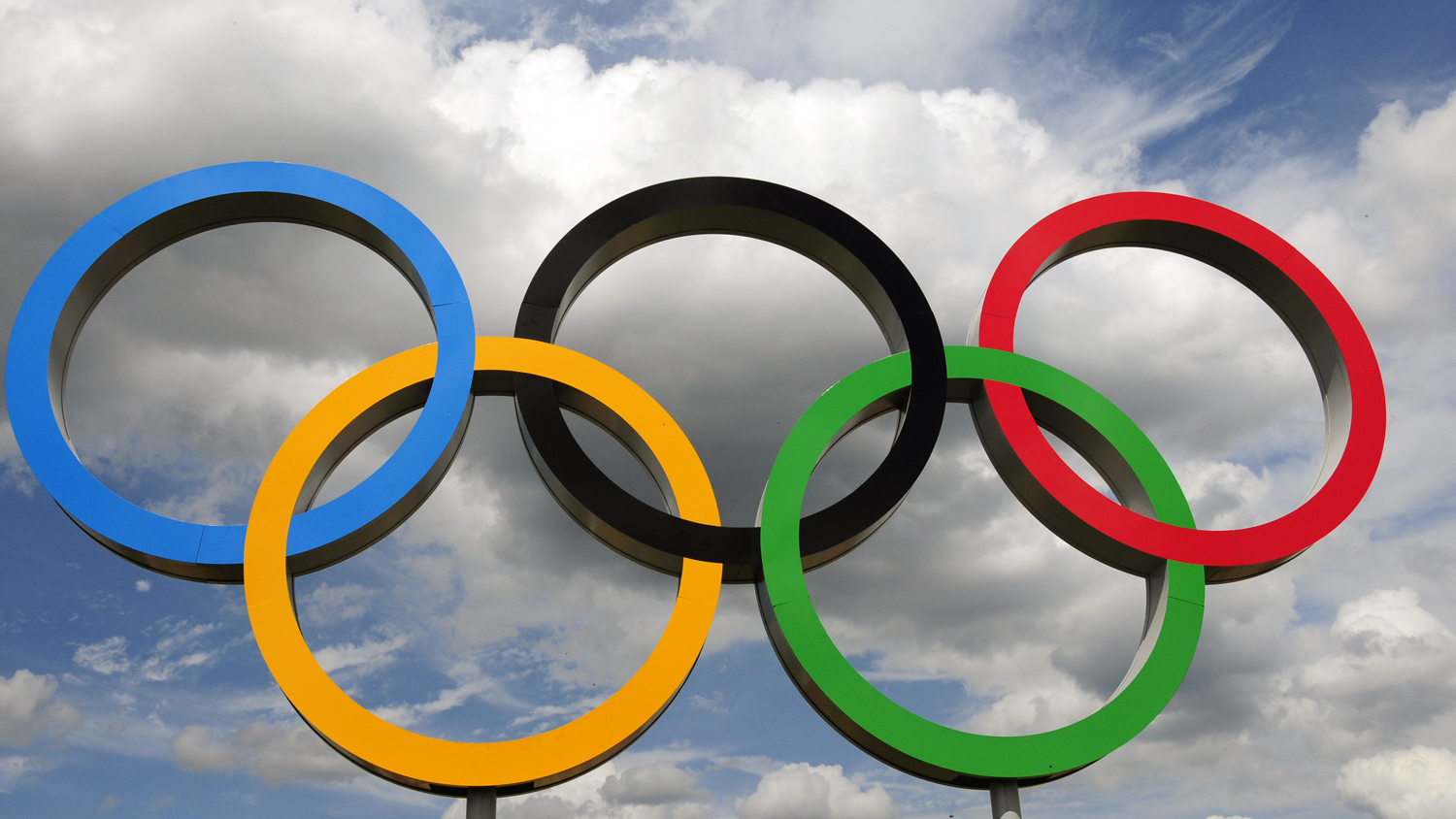Who Wins? Outcomes of Olympic-sized Events

Winning a bid to host a “mega event” like the Olympic Games is the start of a Herculean commitment for host countries. After years of planning, investment and construction, nations roll out the welcome mat for international visitors and media attention. But once the closing ceremonies are over, what are the enduring economic, environmental and human impacts of a mega event?
Those questions fascinate NC State professor Jason Bocarro in the College of Natural Resources, who studies the public health effects of recreation and sports programs and organizations. Bocarro, co-editor of Legacies and Mega Events: Fact or Fairy Tales? answered questions about the new book for The Abstract.
What exactly is a mega event? Can you provide some examples?
Defining a mega event is controversial. However, the general consensus is that mega events require substantial investment by their hosts and attract considerable media attention. In addition to their scale, defining features of mega events are that they move from place to place, last for a fixed duration, attract a large number of visitors, have a large mediated reach, come with high costs, and have significant impacts on the built environment and the population.
Some people think that a mega event should be confined to sports. However, in our book we included non-sports related mega events.
Sporting mega events include the FIFA World Cup, Olympic Games, Rugby World Cup and Asian Games, because they include multiple countries and their size, scope of their infrastructure, costs and media attention are significant. Some would also include the Super Bowl in that definition. Non-sporting mega events include expos, political summits, conventions or festivals, such as Mardi Gras, which we discuss in the book.
Tell us about the different types of legacies that can occur because of mega events, including economic, environmental and social impacts.
The impetus to measure legacy emerged from the Olympic Movement and a desire to legitimize it, gain global recognition, increase power and self-promote. Increasingly, as local mega sporting event advocates and governing bodies sought to justify considerable resource allocations for sport and supporting infrastructure to stakeholders, legacy was promoted as both a tangible and intangible benefit that will accrue to host states in return for their investments.
The rising cost of hosting mega sporting events, controversies over host government spending, allegations of corruption and increased scrutiny by a variety of stakeholders have all led to concerns over the sustainability of mega sporting events. This has resulted in a significant growth in legacy research, which some have attributed to the International Olympic Committee (IOC) mandate in 2000 that stipulated hosts produce legacy plans.
Some of the types of legacies that are being studied are economic, public health (participation), volunteer, infrastructure (both facilities and transportation), environmental, urban redevelopment, security, cultural, branding (linked to tourism), knowledge/education, social and emotional (linked to what the event means to the host nation).
You can see recent games, such as London, being focused on a few targeted legacies:
- the regeneration of East London (infrastructure/ urban redevelopment legacy)
- inspiring community activity by young people (volunteer legacy)
- encouraging business investment (economic legacy)
- inspiring sustainable living (environmental legacy)
- making the U.K. a world-leading sporting nation by getting people more involved in sport (health/participation legacy)
Countries that bid to host mega events like the Olympics often talk about their benefits for citizens in underserved areas. Does research show that this happens? If so, under what circumstances?
Although the potential impacts of mega-events are significant and well-documented, the actual impacts realized by host nations and regions often fall far short of expectations in terms of economic and non-economic impacts in both advanced and developing societies. For example, critics are already labeling the 2016 Rio Olympics as a legacy failure as expensive venues remain without owners and approximately 22,059 families were estimated to have been evicted from Rio’s favelas due to the 2014 FIFA World Cup and 2016 Olympic games.

Our research, backed up by many previous studies, shows that on the whole mega events do not benefit underserved populations. Even in examples like the 1992 Barcelona Olympics or 2012 London Olympics, where parts of the city significantly benefited from the increased urban infrastructure, critics have pointed out that it gentrified parts of these cities, forcing poorer residents out.
We just had a postdoctoral student visiting from the University of Belfast. Her research examined the legacy of the 2014 Commonwealth Games on the East End of Glasgow (a very deprived part of Glasgow with high rates of poor health). Residents in that area complained about the disruption the games caused and the facilities and amenities left behind. Local people are not using the world-class velodome and swimming pool – in fact, people are coming from distances away to use them. In the case of swimming, use has actually decreased as residents look at the incredible facilities and see a mismatch with their ability.
The only ad hoc way I’ve seen mega events benefit underserved populations is in the case of various programming that starts as a result of the games. For example, the Football Foundation of South Africa was started prior to the 2010 World Cup. It has continued to grow and serve children in the Gansbaai area and Masakhane township. There are similar initiatives throughout other mega events, but they are very ad hoc and many continue to struggle to survive after the event.
With only two cities bidding, the IOC is planning to award Paris and Los Angeles the 2024 and 2028 Olympics. Based on what you’ve learned, will it be more difficult to attract bidders for mega events in the future?
Yes, we’re already seeing that. In 2012 the Dutch government released a report that predicted that in the future only non-democratic countries will pay to host these events. The use of sporting and other mega events to bring about transformation of socially deprived areas of major cities, as well as a host of other legacy claims, are becoming an increasingly important part of the rationale behind hosting such events. The tax-paying public increasingly has to be persuaded of the benefits, beyond the event itself, to spend the nation’s resources in this way.
However, the facts suggest that previous widespread support for embracing these events has waned. Data suggests that potential hosts are becoming more reluctant to bid in that 12 different cities bid for the 2004 Olympics, whereas the 2020 Olympics elicited just five applicants. After Oslo removed itself from consideration, only two cities—Beijing and Almaty, Kazakhstan—remained as viable candidates to host the 2022 Winter Olympics.
Hosting mega events has also proven both costly and difficult to budget for. For example, the Athens Olympics’ projected budget was set at $1.6 billion, but the games eventually cost nearly $16 billion. For the Beijing Olympics projected costs for the organizing committee alone were reported as $1.6 billion with a final budget, including facilities and infrastructure, being $40 billion. Non-sporting mega events do not often include a bidding process but also have the potential to produce considerable impacts for hosts. Cultural mega events arguably produce fewer quantifiable economic impacts such as “trading opportunities for nonprofit organizations and the contribution of the festival to local entrepreneurial culture.” The fact is that mega events are happening throughout the world and the costs associated with these appear to be increasing significantly.
What is the most compelling example you’ve seen of a successful mega event? Of an unsuccessful mega event?
A couple of examples of successful sporting mega events are the 1992 Barcelona Olympics (well planned) and the 2002 Commonwealth Games in Manchester, England. Barcelona leveraged the games to promote the city. It rebuilt decaying infrastructure and used those improvements to attract business to the city. Manchester has used sport to revitalize communities and tackle social deprivation. Since successfully staging the 2002 Commonwealth Games. Manchester has had some excellent public-private partnerships that have turned into some good economic investments.
An example of an unsuccessful mega event was the 1976 Montreal Olympics that crippled the city financially and took something like 40 years to pay off. I’d also say that the 2004 Athens Olympics was fairly disastrous, given the economic conditions that crippled the Greek economy shortly afterwards. However, I think in 10 years we’ll look back and see that Brazil, which hosted the FIFA World Cup in 2014 and the Olympics in 2016, was a social, economic and environmental disaster. Recent pictures which you have probably seen from Sochi, Beijing, Athens and Brazil show white elephant stadiums alongside increasing debt. Some countries and cities (such as London, Beijing and Sydney) are able to absorb some of the negative impacts of the Olympic Games.
Tell us about some unexpected effects your research uncovered.
One of the points we make in our book is that legacy does not take place in a vacuum and so much long-term impact is actually largely out of the control of those that organize the events. For example, most legacy planning for the truly major events such as the Olympic and Paralympic Games and the FIFA World Cup takes place seven to 10 years before the event actually takes place. That makes it almost impossible for planners to know what the situation, in terms of the global/political economy, might be in the future, which makes guaranteeing any kind of legacy almost impossible. I think you will increasingly see the bidding process changed for mega events, with potentially no bids or rotating hosts.
A clear example of the problems associated with choosing locations years in advance is the Rio 2016 Games, where the political and economic situation in Brazil in 2009 (the year they won the bid) was far better and more stable than in 2016 when the Games occurred. However, it was impossible in 2009 for organizers to predict significant political and economic events such as the crash in global oil and commodity prices (upon which their economy was so dependent), the political scandals and corruption allegations that led to the impeachment of their president just before the Games, or even the Russian doping crisis that enveloped the Games. Placing legacy research within the wider context is vitally important when assessing the success or otherwise of a particular legacy plan in relation to a mega event.
Also, I think our research from the 2012 London Paralympic Games was surprising and shows evidence of unintended consequences. We found that the success of the 2012 London Paralympic Games had a surprisingly negative legacy for people with disabilities. Ordinary people with a disability felt little connection, if any, to Paralympians, in terms of the issues they face in their everyday lives. Furthermore, the perceived expectations by the nondisabled population that all people with disabilities can perform like Paralympians only accentuated this disconnection. Thus, despite the Games being the most watched (both in person and on TV), people with disabilities in the UK reported more discrimination in the years after the Games.
- Categories:


